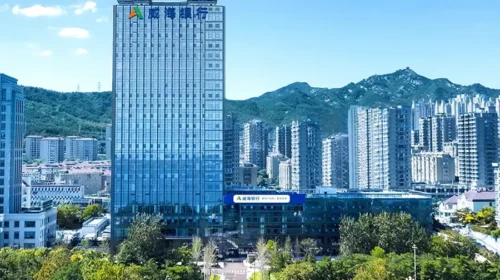CHINA BULLETIN: Time to Celebrate?

Welcome to the latest Bamboo Works China Bulletin, where we recap the top China macro, industry and company developments from the past week and give you our spin on what it all means. In this week’s issue, the latest Communist Party Congress says China will keep opening up, while officials convene emergency meetings to discuss the latest U.S. restrictions on Chinese microchip makers. On a scale of 1 to 10, we give the week a 4.5 for offshore-listed China stocks.
Doug Young, Editor in Chief
MACRO
Time to Celebrate?
It’s been a quiet week on most of the fronts we usually cover as everyone takes a break while the Communist Party holds its 20th Congress where new leadership is named and priorities discussed for the next five years. From our more business-oriented perspective, there wasn’t a whole lot of major news coming from the meeting.
Some observers found significance in the call for continued opening up, which isn’t really new but signifies that China will keep its doors open economically. There was also little or no discussion of the impact that China’s “zero Covid” policy is having on the economy, though one analyst said the prominent mention of national security may point to a continuation of strict Covid control measures and a 2-year-old crackdown on tech companies. Overall there wasn’t much to celebrate.
Where’s the Indicator?
Not surprisingly, no major economic indicators were announced last week to keep everyone focused on the Party Congress. But one, quarterly GDP growth, was scheduled to come out on Tuesday. Until it didn’t, which of course got tongues wagging on the reason for the delay.
In our view, the postponement wasn’t a huge surprise. The GDP date was probably scheduled months in advance, whereas dates for the Party Congress were just announced at the end of August. The delay was almost certainly part of the broader blackout on big news during the Congress, compounded by the fact that second quarter GDP growth will inevitably be quite ugly.
Stock Bloodletting Takes a Semi-Breather
China stocks couldn’t shake their selling blues last week, but at least the recent bloodbath of the previous few weeks appeared to be easing. The Hang Seng China Enterprises Index fell 2% during the week, slightly better than a 2.3% decline for the broader Hang Seng Index. Meantime, the iShares MSCI China ETF was unchanged for the week.
Markets didn’t really have a whole lot to go on during the week, at least in terms of corporate news from China. Tech stocks like Alibaba and Meituan rallied in the first part of the week, perhaps buoyed by bargain hunters who thought the shares were trading at bargain basement valuations. But they gave back most of those gains late in the week, showing China tech just can’t catch any breaks these days.

INDUSTRY
Doomed Chip Makers?
Bloomberg got a scoop when it reported that one of China’s tech regulators had convened a series of emergency meetings with the nation’s top semiconductor chip makers to discuss the latest U.S. export control measures that threaten to choke an industry that Beijing badly wants to develop. A day later, one of the companies that was reportedly at the meeting, Yangtze Memory Technologies, issued a statement flatly denying such gatherings took place.
The Bloomberg report was quite alarmist, citing chipmakers that said the latest U.S. curbs would spell doom for the industry. So, it’s not too surprising that one of the companies specifically cited at the meeting would deny everything to avoid facing the wrath of government officials angry about such a leak. If we were betting, we’d give heavy odds – maybe up to 90% – that the Bloomberg report was accurate.
Sinking Shipping Rates
After a year of making bumper profits from soaring prices, ocean shippers are suddenly feeling equal pain and moving to slash capacity as prices plunge. The Shanghai Containerized Freight Index, a widely watched gage published by the Shanghai Shipping Exchange, has tumbled nearly 70% this year through last week, according to a report in financial media Caixin.
Some might say “It’s about time,” since rates were ridiculously high for more than a year after initially crashing at the start of the pandemic. What’s perhaps most interesting about this latest crash is it appears to have its origins in plunging demand from Chinese manufacturers, which could reflect both the country’s own slowing economy and slumping demand from foreign buyers.
Fast Plane to China
After slashing its air connections with the rest of the world as part of its draconian Covid control measures, China appears to be reversing course and stepping on the accelerator for international flights. A media report says Shanghai-based China Eastern is a case in point, planning to roughly double its number of international flights by the end of this month.
The airlines are coming off an extremely low base, so doubling capacity may not translate to much larger numbers of actual passenger arrivals. But at least the move could help to bring down ticket prices that have soared to astronomical levels, and may signal more easing to come.

COMPANY
Juiced Up for Storage, But Not for NEVs
Leading battery maker CATL was in a couple of headlines last week that show the latest shifting tides in the new energy sector. One of those said the company had won a deal to supply its storage batteries to a major U.S. solar project, while the other said it was tamping the brakes on its investment plans for the U.S. and Mexico.
The first headline shows that batteries used to store excess electricity generated by wind and solar plants is set to become a big growth area as part of the drive to make such new energy power farms more efficient. Meantime, the second one shows that the recent run-up in new energy vehicle sales, fueled in no small part by China, may be running out of juice.
Fosun’s Cold Roll From Steel
Ok, so maybe we’re getting a little cutesy with our latest headline on Fosun Group, the former highflying Chinese financial conglomerate that is struggling with a looming debt crisis. The company is reportedly planning to sell its stake in a major Chinese steelmaker for 15 billion yuan ($2.1 billion), marking its latest asset sale in a recent cash-raising frenzy.
We’ve written about this story recently in Bamboo Works after the company raised more cash by selling down its stakes in New China Life Insurance, as well as Fosun Tourism, owner of the Club Med chain. Most of China’s former financial highflyers have gone the way of the dinosaur by now, killed by too much debt. Fosun is one of the few still standing, though the question is, for how long?
Watch Out Amazon, Here Comes Pinduoduo
Chinese internet companies have been notorious failures in the west, though certainly not for lack of trying. One major exception is TikTok, whose short video services have become a global sensation. E-commerce company Pinduoduo is hoping to duplicate that success in the U.S. with a new super-budget service launched last month, selling things like bluetooth earphones for as little as $2.
Pinduoduo certainly isn’t the first to try to crack the U.S. e-commerce market. Alibaba tried shortly after its 2014 IPO and called it quits not long afterwards. Pinduoduo’s new foray also looks similar to one by LeTV, the former Chinese internet TV superstar that later imploded. One thing Chinese firms often fail to understand is that western consumers aren’t quite as price sensitive as their Chinese peers, and prefer to pay a little extra for something that won’t break after just a week or two of use.
AND FROM THE PAGES OF BAMBOO WORKS
| Meituan on Global March Speaking of going global, our “big tech” story this week looked at takeout delivery giant Meituan and its plans to tickle taste buds outside of China. The company is taking things slowly, however, aiming to use Hong Kong as a springboard for its global foray that’s being led by a former international business chief poached from short video giant Kuaishou. We have a lot of respect for Meituan, which started out about a decade ago as a Chinese knockoff of U.S. “daily deal” site Groupon, but has gone on to become quite the powerhouse in takeout dining and restaurant ratings. We do suspect it will run into quite a bit of competition if and when it tries to expand beyond Hong Kong, as the space where it operates is already quite crowded in most major markets with names like Yelp and Uber Eats. |
| Bring on the Polysilicon Ok, so perhaps not everyone is too well-versed in polysilicon, the main ingredient used to make solar panels that could one day supply most of the world’s electricity. But makers of the material have been hard at work adding huge amounts of new capacity to take advantage of soaring prices for the material, including leading Chinese maker Daqo New Energy. Last week we examined Daqo’s two latest major supply deals, which could account for more than 10% of the company’s output as it triples its capacity over the next few years. With polysilicon makers all scrambling to add similar new capacity, the race is on to line up customers for all that new output – or risk being left with lots of sparkling new facilities sitting idle for lack of buyers. |





